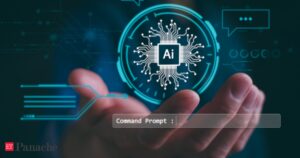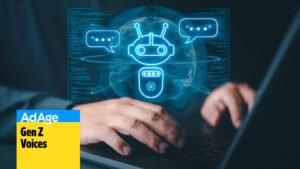Adapting Leadership for an AI-Driven Future: Five Key Insights for 2035

The Future of Humans and AI: Insights from Technology Experts
Recent research from Elon University’s Imagining the Digital Future Center surveyed nearly 200 global technology experts about the future impact of Artificial Intelligence (AI). The findings reveal a complex view of what lies ahead, combining both optimistic and concerning elements. About 61% of those surveyed predict that AI’s influence will be profound and transformative.
A New Perspective on Identity and Mental Health
In our evolving digital landscape, we are not simply who we are; we are morphing into multifaceted digital identities. The research highlights how individuals increasingly manage various personas—avatars, digital twins, and online representations of themselves—across different platforms. This shift may lead to a crisis in the notion of authenticity, as our identities are shaped primarily by algorithms and contextual use.
Experts also express concerns regarding mental health in a future increasingly intertwined with AI. For instance, Barry Chudakov from Sertain Research speculates that many may experience fragmented identities, living part online and using AI for self-promotion. A significant percentage—45%—of the respondents forecast a predominantly negative impact of this AI evolution on mental well-being by 2035.
Moral Autonomy and Personal Choice
One critical theme explored is the impact of AI on personal freedom. Evelyne Tauchnitz, an ethical scholar, warns that AI systems designed to guide our decisions might threaten our ability to choose freely. As algorithms optimize our choices, the potential for human autonomy diminishes. With many experts feeling that AI could negatively affect individual agency, the implications become alarming: the very essence of human decision-making may be at risk.
AI and Human Relationships
AI’s role might extend beyond the workplace and into our personal lives. Experts like Nell Watson predict that AI-driven romantic partners could offer idealized relationships, making human connections seem overly complicated. There’s also a view that these programmed emotional attachments—often one-sided—could lead to parasocial relationships, where individuals engage more with digital beings than with real human interactions.
Henning Schulzrinne, a former tech leader, speculates that relying on AI for relationships could reshape how we value real-life commitments, raising questions about the quality and authenticity of these connections.
Enhancing Knowledge and Curiosity
Not all insights from the survey paint a grim picture; some experts see potential for positive growth through AI. David Weinberger from Harvard believes AI can heighten our awareness, helping us notice aspects of the world we might otherwise miss. With AI lifting cognitive burdens, it could foster greater curiosity and a deeper appreciation for learning.
Dave Edwards from the Artificiality Institute likens AI systems to "minds for our minds," enhancing human judgment rather than replacing it. There is a sense that AI could encourage a more expansive line of inquiry, helping individuals ask more questions and engage with a wider range of ideas.
The Danger of Mediocrity
A word of caution accompanies these reflections. Alf Rehn, a professor specializing in innovation, describes AI as potentially being "mediocrity engines," unable to generate the spark that defines human creativity. He emphasizes that the challenge is to move toward hybrid intelligence, fostering original and unique outputs instead of monotonous, average results.
Fostering Human Traits in Leadership
The overarching lesson from the survey is a call to emphasize human traits like creativity, curiosity, and decision-making in leadership. Experts believe that strong leadership grounded in these qualities is vital as AI continues to evolve and integrate into our society. As we advance with AI, preserving the elements that make us distinctly human may ultimately guide our future.
This profound intersection of technology and humanity—it’s a topic that merits our attention today as it shapes the very essence of our tomorrow.






